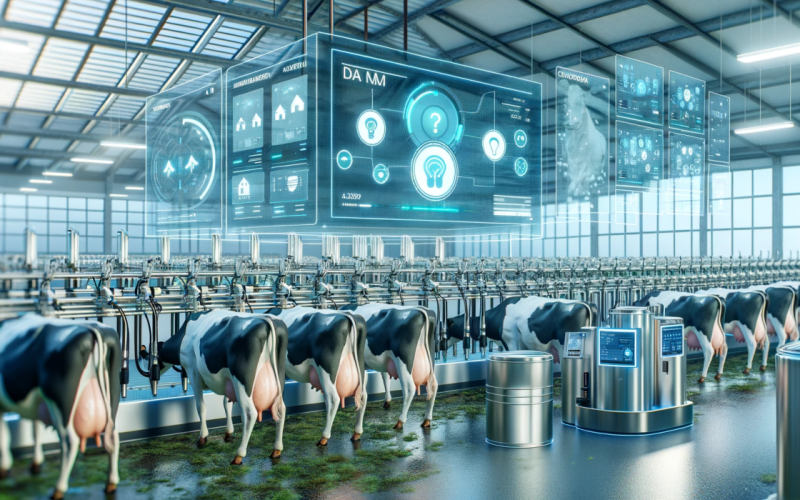AI Revolutionizes Dairy Farming: Smarter, Faster, Sustainable

One of the most significant impacts of AI is seen in the direct management of dairy herds, leading to marked improvements in animal health and welfare. AI-driven systems continuously monitor individual animal behavior and physiological data from sensors and ear tags, allowing for the early detection of illnesses, stress, and even subtle signs of lameness or mastitis before they escalate. This proactive approach not only significantly reduces veterinary costs and potential losses from disease outbreaks but also optimizes feed efficiency and reproductive management, thereby boosting overall herd productivity and profitability for dairy producers.
Beyond animal health, AI is driving unprecedented levels of operational efficiency and cost reduction across dairy farms. Automated processes and predictive analytics enhance inventory management and production planning, while AI-powered route planning optimizes logistics, reducing emissions and transportation costs. By integrating and analyzing vast datasets in real-time, AI empowers farmers with data-driven insights for more informed decision-making, automating many data-intensive tasks and allowing farm staff to focus on more critical responsibilities, leading to a leaner, more productive dairy operation.
The integration of AI also plays a critical role in advancing sustainability in dairy farming. By optimizing water and energy usage, reducing waste through accurate demand forecasting, and minimizing environmental impact, AI supports more eco-friendly practices. Innovations like AI-optimized manure management and the potential for carbon credits from reduced methane emissions highlight AI’s contribution to environmental responsibility. Furthermore, technologies like blockchain, when integrated with AI, strengthen supply chain transparency and traceability, assuring consumers of product authenticity and sustainable sourcing.
While the adoption of AI in dairy farming presents immense opportunities for a more efficient and competitive future, challenges such as high implementation costs, infrastructure limitations, and the need for specialized AI expertise persist. Data ownership and security also remain critical concerns that require careful consideration. Nevertheless, as the dairy sector continues to evolve, the strategic integration of AI and other digital technologies will be essential for improving profitability, enhancing animal welfare, and meeting growing demands for sustainable and transparent food production.










